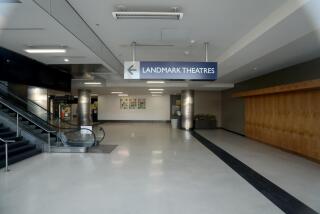Grant Aids Armenian Refugee Program
- Share via
Fueled with $385,000 in federal funds, a Glendale-based Armenian relief organization this week initiated a program to help Soviet Armenian refugees adjust to life in the United States.
The program at the Armenian Relief Society, a private, nonprofit aid group with a large Glendale chapter, includes acculturation classes and counseling for refugees. It is one of three to be run by Armenian organizations in Los Angeles County with $1.2 million allocated by the Los Angeles County Department of Health and Human Services.
Under terms of the grant, society social workers will counsel the refugees both in private and in group sessions, visit their homes and conduct English classes, job training programs and help place them in jobs, said Sarkis Ghazarian, director of social services at the Armenian Relief Service in Glendale.
The money was awarded to the county by the federal government in July, but allocation of the funds was contingent on approval by the County Board of Supervisors. The board approved the awards Tuesday.
County refugee relief coordinator Joan Pinchuk called the federal money “a drop in the bucket, but hopefully a pretty big drop.” She applied for the money on behalf of the Armenian organizations more than a year ago to deal with an influx of more than 31,000 Armenian emigres who have settled in the county since October, 1987.
Soviet Armenian refugees have been settling in Glendale at the rate of about 250 a month since early this year, Ghazarian said. They are joining friends and relatives in an Armenian community that is spread throughout Glendale, Hollywood and parts of the San Gabriel Valley. It is the largest Armenian community in the world outside of Soviet Armenia.
Social workers who deal with the refugees say that refugee resettlement programs are inadequate to help the Soviet Armenians, who generally leave the Soviet Union so fast that they have no time to learn about the United States before they come to Los Angeles.
Unlike most refugees, who are taught about life in the United States while they wait in refugee camps to get their visas for months and often years, those leaving Soviet Armenia often arrive in Los Angeles less than two weeks after they leave their homeland, U. S. State Department officials said.
Their rapid relocation, while a blessing to the emigres and to their relatives here, means that they arrive in Los Angeles with few job skills and little idea of how to do things such as drive to work and pay rent, Ghazarian said.
“They are leaving their country so fast they have no time to understand what they’re getting into,” Ghazarian said. “They don’t have time to take in the vast cultural changes they are about to make.”
The grant money is expected to be available to the relief groups by the end of November. But the acculturation program that it funds officially began Wednesday.
In addition to the money received by the Armenian Relief Society under terms of the grant, the Armenian Evangelical Social Service Center in Hollywood will receive $385,000 and the Western Diocese of the Armenian Church, also in Hollywood, will receive $250,000.
For the Armenian Relief Society, the money represents an opportunity to more than double the services that the organization provides, Ghazarian said. The $385,000 in federal funding is more than half as large as the Glendale chapter’s budget this year--about $500,000, Ghazarian said.
Relief Society officials have already transferred four social workers from the agency’s other offices in the county to get the Glendale acculturation program off the ground, Ghazarian said. He said he also plans to hire four more social workers within two weeks.
Many of the emigres are forced into drastic career changes because of their lack of English language skills, and some Armenian women who were housewives in the Soviet Union enter the job market for the first time after settling in the United States, Ghazarian said. The result is a grab bag of problems that has been keeping the short-staffed service open late at night for more than a year.
“It’s both exciting and also a challenge to provide the services that we know are needed,” Ghazarian said. “All we can do now is do our best to help our clients and the agencies that serve them.”
More to Read
Sign up for Essential California
The most important California stories and recommendations in your inbox every morning.
You may occasionally receive promotional content from the Los Angeles Times.










